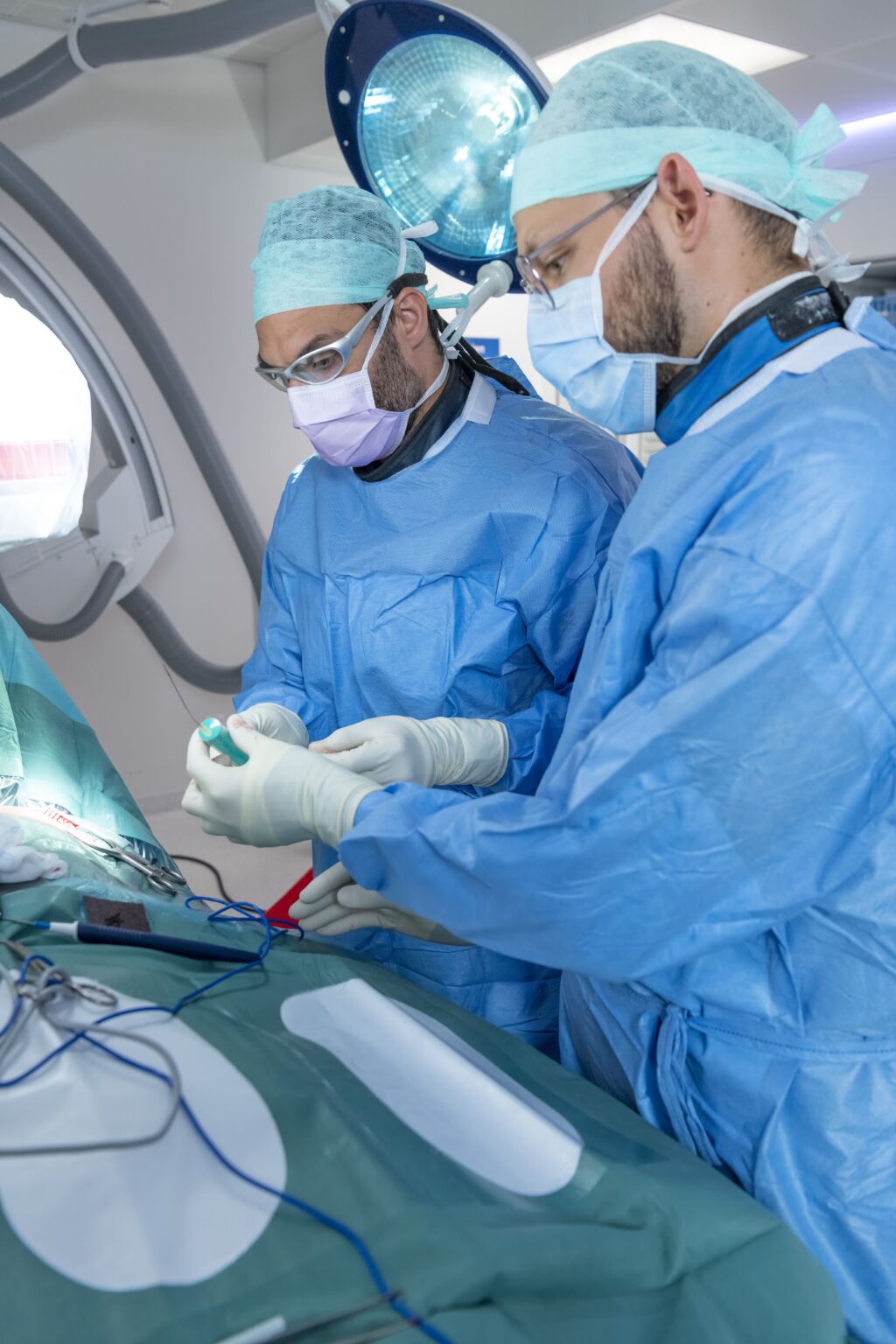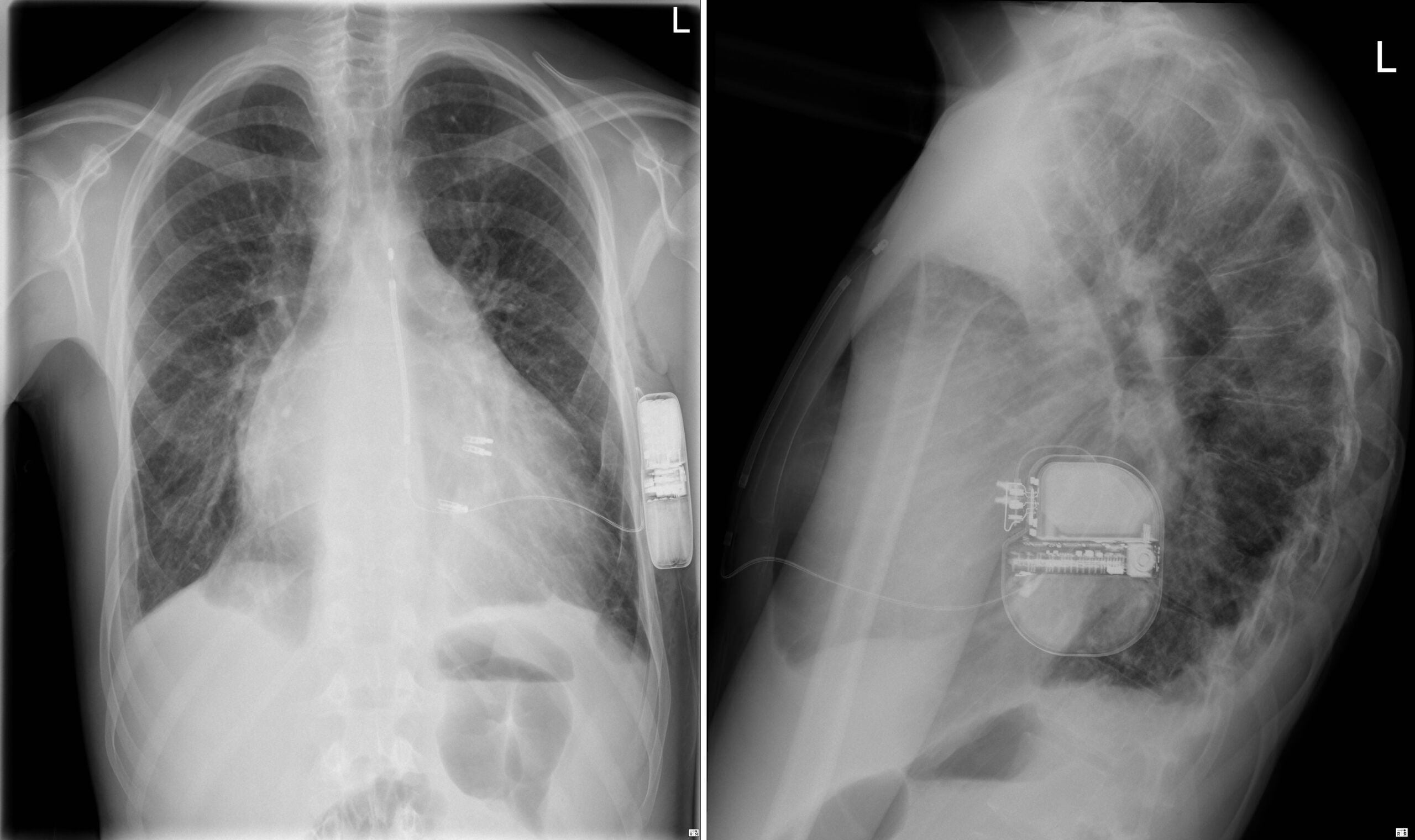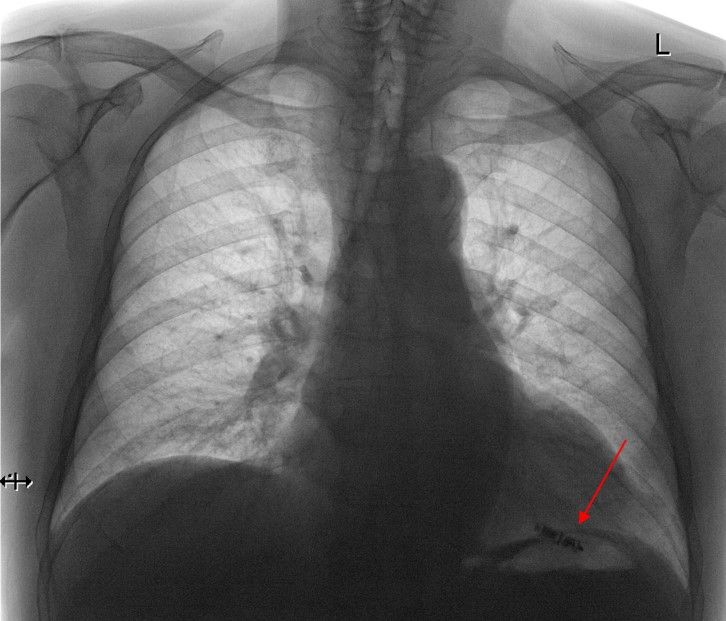Until 25 years ago, the classic pacemakers, which were used to treat a heart rhythm that was too slow, were the only representatives of “cardiac devices”. In the meantime, the spectrum has been extended, above all by intracardiac defibrillators (ICDs), which enable the treatment of rapid cardiac arrhythmias (ventricular tachycardia, ventricular fibrillation), which occur primarily in patients with severe cardiac insufficiency. Certain patients with heart failure suffer from “electrical dyssynchrony”, which can be corrected using a biventricular pacemaker to resynchronize the heart chambers (CRT). In collaboration with the heart failure unit, we decide – with the involvement of the external cardiologists and general practitioners providing care – which patients are eligible for which device implantation.

Our team has extensive experience in the implantation of cardiac devices and their optimization and aftercare. All patients with CRT, as well as certain high-risk patients with ICDs and pacemakers, are monitored by us via remote monitoring. If a serious arrhythmia, malfunction or “water overload” of the body occurs, a central server sends a message and the necessary therapeutic steps are initiated. In ICD patients, remote monitoring can reduce overall mortality.
The subcutaneous ICD, which does not require electrodes in the veins due to its completely extrathoracic position, is a good alternative for certain patients, especially young patients.

The so-called miniature leadless pacemaker, a small pacemaker without an electrode that is anchored in the right ventricle, has been available for some time. This procedure is particularly gentle and is particularly suitable for older patients and patients with very slow atrial fibrillation. Together with the attending cardiologists, we assess referred patients with regard to cardiac devices. In addition, we have established a program for electrode removal, which is carried out under the best possible conditions in the cardiac surgery hybrid operating theatre together with the cardiac surgery department. In patients with recurrent syncope of unknown origin, the use of implantable loop recorders (over several years) can lead to a diagnosis (e.g. asystole or AV block).
